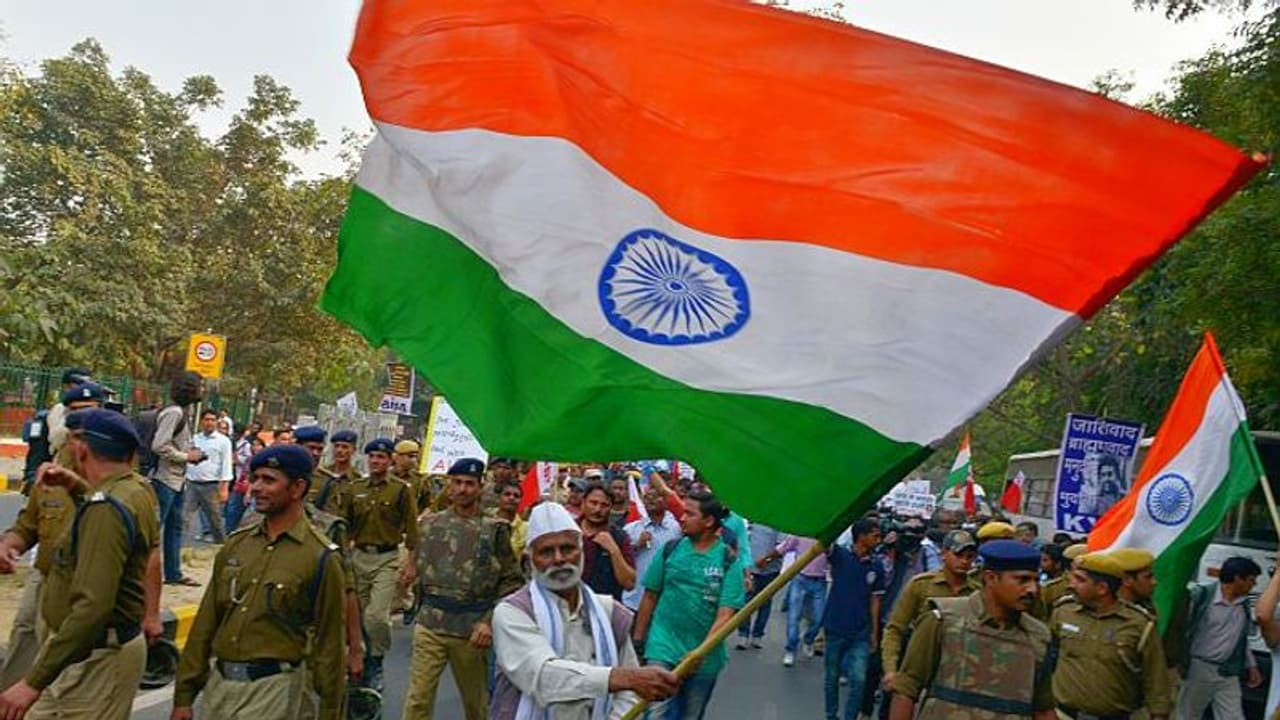A bench headed by Chief Justice of India, NV Ramana and comprising of Justices Surya Kant and Hima Kohli is examining whether the issue should be sent to a larger bench or not.
Urging the Supreme Court not to examine the constitutional rationality of colonial-era 'sedition law', the Union government announced that it had decided to re-examine and re-consider the provision of the British-era law. A bench headed by Chief Justice of India, NV Ramana and comprising of Justices Surya Kant and Hima Kohli is examining whether the issue should be sent to a larger bench or not.

Let's know more about the sedition law:
Who drafted the sedition law?
In 1837, British historian and politician Thomas Babington Macaulay first drafted the sedition law.
Also Read: Defining who is a minority: Centre changes stand in Supreme Court
What does the sedition law say?
According to this law, whoever, by words, either spoken or written, or by signs, or by visible representation, or otherwise, brings or attempts to bring into hatred or contempt, or excites or attempts to excite disaffection towards the Government established by law in India, shall be punished with imprisonment for life. A penalty could also be added.
Why was it needed in India?
The sedition law was implemented in the 1870s to suppress the Wahabi movement, which was centred around Patna. It was an Islamic movement aimed at opposing any change in the original Islam and returning it to its true spirit.
In 1891, the law was slapped in a trial against newspaper editor Jogendra Chandra Bose.
During the British era, sedition was slapped on Mahatma Gandhi, Bal Gangadhar Tilak, Abul Kalam Azad, Jawaharlal Nehru and Vinayak Damodar Savarkar.
Why is the case before Supreme Court now?
A batch of petitioners, including former Indian Army officer Major General SG Vombatkere (Retired), Editors Guild of India; former BJP leader and Union minister Arun Shourie, TMC MP Mahua Moitra, journalists Anil Chamadia, Patricia Mukhim, Anuradha Bhasin, People’s Union for Civil Liberties (PUCL); and the Journalist Union of Assam had filed a case, questioning the validity of the law.
The petitioners have alleged that the law has been misused widespread by police across the country.
The law has allegedly been regularly misused to suppress dissent, target critics of governments at the Centre and in states, and harass journalists, activists and opposition leaders.
Is this the first time that the sedition law has been challenged?
In 1962, the sedition law's constitutional validity was challenged in the Supreme Court in the Kedar Nath Vs State of Bihar case. In its ruling, the Supreme Court had upheld it stating that the State required the power to protect itself.
However, the court had added a caveat that "a person could be prosecuted for sedition only if his acts caused incitement to violence or intention or tendency to create public disorder or cause disturbance of public peace".
It had said that "a citizen has a right to say or write whatever he likes about the Government, or its measures, by way of criticism or comment, so long as he does not incite people to violence against the Government established by law or with the intention of creating public disorder".
What is the Union government's stance on the sedition law?
In its affidavit in the Supreme Court, the Narendra Modi government has said that the prime minister has expressed "clear and unequivocal views in favour of protection of civil liberties and respect for human rights" and that "outdated colonial laws have no place in India which is celebrating 75th Independence year."
Last week, the Union government was vociferously defending the law and urging the Apex court to dismiss the petitions challenging it. But on May 9, it made a U-turn and decided to review the legislation.
Also Read: '100% perfect': Amit Shah says next census will be e-census, every birth, death to be registered
